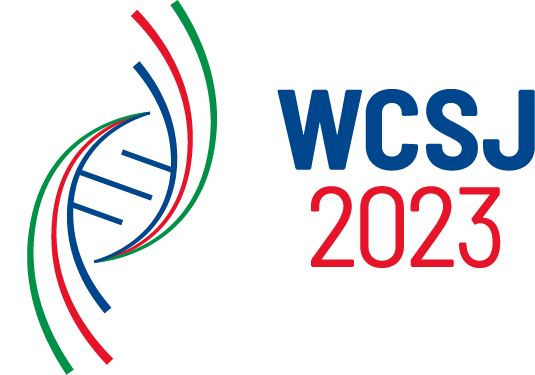March is round the corner and the final preparations are taking place for a dynamic and informative WCSJ in Medellín. The programme is available on our website for you to explore. From parallel sessions on knowledge sharing across borders and covering science while science is under attack, reaching underserved audiences and challenges and new ideas for reporting on climate change, you are sure to fill your schedule.
Our plenaries are on biodiversity, food security, climate change and more, as well as open science - in which Latin America has led the world. There are pre-conference workshops and post-conference field trips to enjoy too.
New to the programme: Plenary by Avecita Chicchón: News from Amazonia: Conserving bio-cultural ecosystems
The Amazon is the Earth’s largest remaining rainforest. It provides one-fifth of the world’s fresh water, is home to the planet’s most diverse collection of wildlife, provides life-giving resources to local people and Indigenous communities. And importantly, the region plays a vital role in mitigating climate change. Although the last decade has seen progress in the sustainable management of Indigenous lands and protected areas of the region, significant threats remain. Our panelists will discuss key threats and share how local and national governments, Indigenous communities, NGOs and the private sector are working to conserve the Amazon basin to benefit local and global communities.

Avecita leads the Gordon and Betty Moore Foundation’s Andes-Amazon Initiative, which aims to secure the biodiversity and climatic function of the Amazon biome. Since the initiative began in 2001, it has helped conserve and improve management of over 170 million hectares in the Amazon, nearly one-third of the original forest cover. Avecita also led the team that developed the foundation’s forests and agricultural markets work.
Avecita has over 30 years of experience in natural resource use, biodiversity conservation and sustainable development in Latin America and the Caribbean. She currently serves on several committees and boards, including the Funders of the Amazon Basin, Strategic Steering Committee for the Andes Amazon Fund, the Amazon Biodiversity Center advisory board, and the program team for the Climate and Land Use Alliance. Before coming to Moore, Avecita served as the executive director of the Latin America program at the Wildlife Conservation Society (WCS), where she led conservation programs in 15 countries.
This session will also be viewable online. For more information check our website.
New: workshop and excursion from World Mosquito Program
Learning session: New tools for the global fight against Dengue fever
March 27, 2023, 1:00 p.m. - 4:30 p.m.
Registration and refreshments begin at 12:30 p.m.

Dengue fever is the world’s fastest-growing mosquito-borne disease, annually infecting nearly 400 million people across 129 countries. Climate change, globalization, and urbanization are accelerating its spread, and the WHO has declared it one of the top-10 threats to global health. But for the first time in history, effective vector control tools and vaccines are emerging to fight this dreaded disease, and new, multi-country efforts to develop urgently needed treatments have been launched. This workshop will provide an expert analysis of the global dengue burden and provide a detailed overview of the new tools that could turn the tide. The session will include a guided tour of the World Mosquito Program’s Medellin insectary, which mass produces Wolbachia-carrying mosquitoes to block dengue transmission in Medellin.
More information here

Journalists who register for the learning session will be transported to the World Mosquito Program’s mosquito mass production facility in Medellin, where they will receive a tour of the insectary, which is capable of producing 40 million Wolbachia-carrying mosquitoes each week. Tours will be offered in English, Spanish, and Portuguese, and journalists will learn how WMP technicians manage the production and delivery of these mosquitoes to urban communities in Colombia.
Following the tour, reporters are invited to participate in an on-the-record Q&A session regarding the development of new vaccines, therapeutics, and vector control methods
for dengue with subject-matter experts.

LATAM airline offer
We have partnered with LATAM airlines to cover special discounts for WCSJ attendees on business and economy flights from across Latin America. Bookings should be made through Gema Tours, as this agency is authorised to manage the discounts. Discounted tickets are limited and will be sold on a first come first served basis, so don’t delay!

We are proud to partner with ITER for WCSJ 2023
Without question, we are witnessing the most unprecedented global pursuit of fusion energy in history. It is a clear signal that we are closer than ever to the realisation of this dream. And ITER is leading the way.
ITER is currently being built in southern France where 35 nations* are collaborating to build the world's largest tokamak, a magnetic fusion device that has been designed to prove the feasibility of fusion as a large-scale and carbon-free source of energy based on the same principle that powers our Sun and stars.
The experimental campaign that will be carried out at ITER is crucial to advancing fusion science and preparing the way for the fusion power plants of tomorrow.
The primary objective of ITER is the investigation and demonstration of burning plasmas—plasmas in which the energy of the helium nuclei produced by the fusion reactions is enough to maintain the temperature of the plasma, thereby reducing or eliminating the need for external heating. ITER will also test the availability and integration of technologies essential for a fusion reactor (such as superconducting magnets, remote maintenance, and systems to exhaust power from the plasma) and the validity of tritium breeding module concepts that would lead in a future reactor to tritium self-sufficiency.
|
